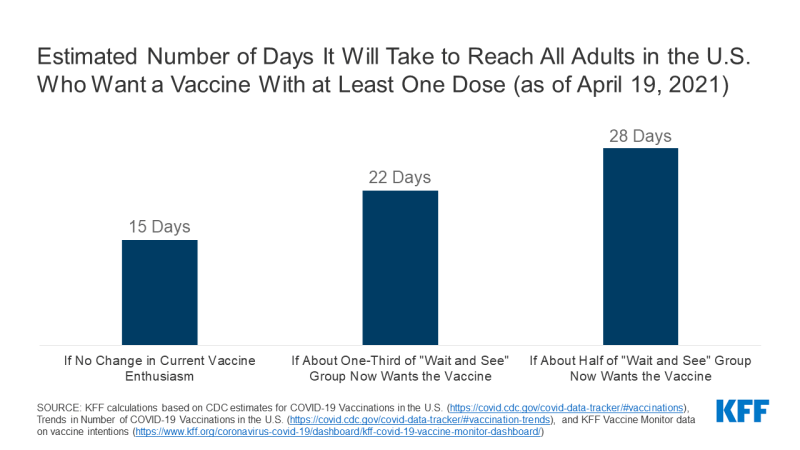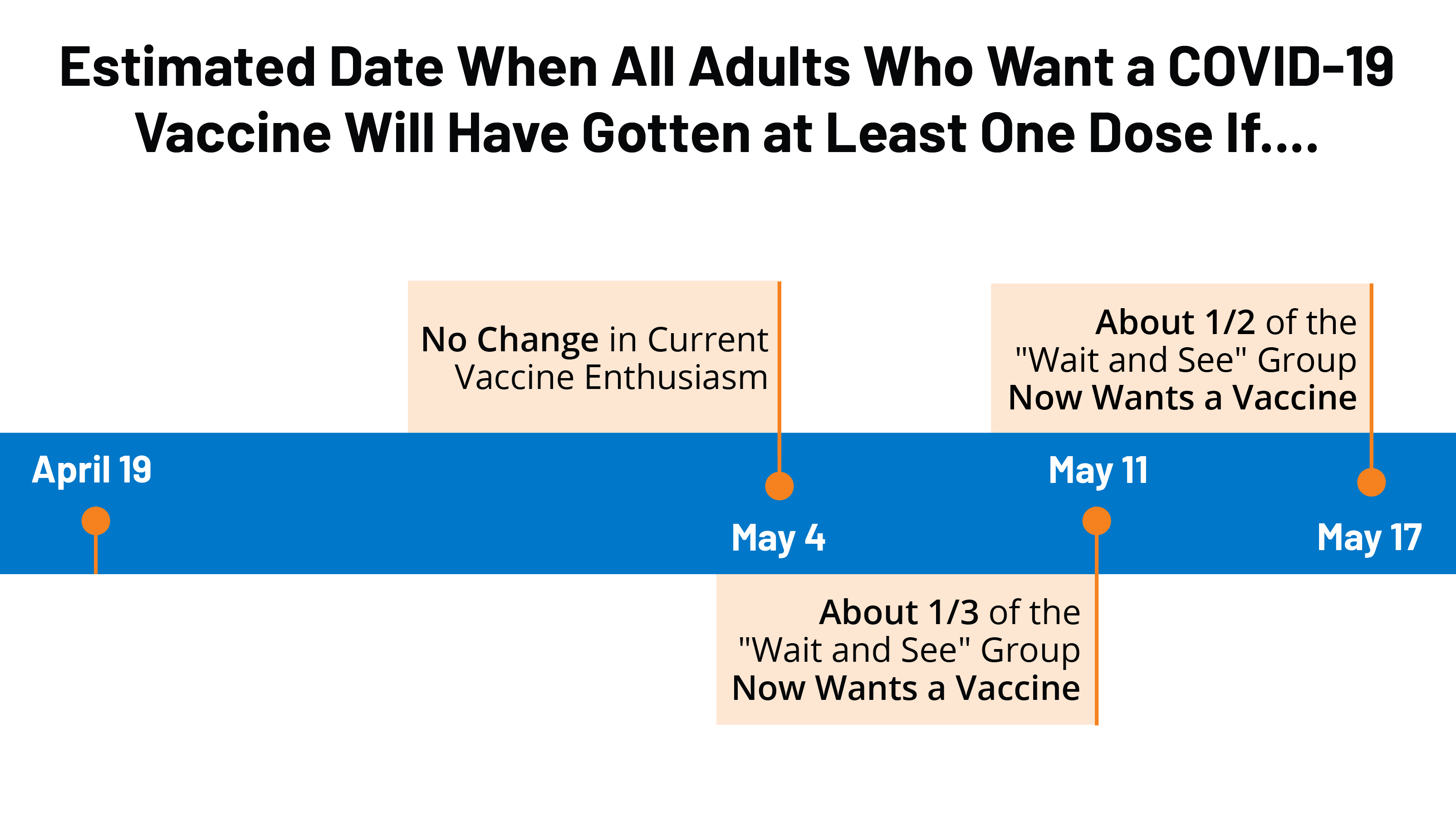For months, the main challenge with COVID-19 vaccine roll-out in the U.S. was that demand greatly outstripped supply. Indeed, limited supply, coupled with restricted eligibility in many parts of the country, meant that most people couldn’t get vaccinated if they wanted to. Now, with supply having increased significantly and eligibility fully open to adults in all states as of April 19, the main question has become, when will supply outstrip demand? While timing may differ by state, we estimate that across the U.S. as a whole we will likely reach a tipping point on vaccine enthusiasm in the next 2 to 4 weeks. Once this happens, efforts to encourage vaccination will become much harder, presenting a challenge to reaching the levels of herd immunity that are expected to be needed.
Our polls, and others, have shown that the share of adults who have either received one vaccine dose or want to get vaccinated as soon as they can has continually increased. As of March 21, it was 61% (up from 55% the month before). This increase reflects a shift from those saying they want to “wait and see” into the vaccine enthusiasm group. In fact, the share saying they want to “wait and see” has consistently fallen, as more people become enthusiastic about getting vaccinated.
If we use 61% as a current “outer edge” of vaccine enthusiasm, it translates into about 157 million adults. The latest data from the CDC indicate that almost 131 million adults (or 50.7% of all adults), had received at least one vaccine dose as of April 19. That leaves an additional 27 million adults to go before we hit up against the “enthusiasm limit”. At the current rate of first doses administered per day (using a 7-day rolling average, as of April 13) – or approximately, 1.7 million per day – we would reach the tipping point in about 15 days. Of course if the pace of vaccination picks up, it could be sooner. However, if those who say they want to get vaccinated right away face challenges in accessing vaccination, it could take longer.

Estimated Number of Days It Will Take to Reach All Adults in the U.S. Who Want a Vaccine With at Least One Dose (as of April 19, 2021)
We also know that, over time, people have moved from the “wait and see” group to the vaccine enthusiasm group, suggesting that the 61% may be a floor, not a ceiling. If about a third of the “wait and see” group moves into the enthusiasm group (comparable to what happened last month), the “outer edge” of vaccine enthusiasm would increase to 170 million people (or 66% of all adults); at the current rate of vaccine doses administered per day, it would take 22 days to reach the point at which supply outstrips demand. If half of the “wait and see” group move, it would take about 28 days to reach the tipping point.
Thus, on average across the country, it appears we are quite close to the tipping point where demand for rather than supply of vaccines is our primary challenge. Federal, state, and local officials, and the private sector, will face the challenge of having to figure out how to increase willingness to get vaccinated among those still on the fence, and ideally among the one-fifth of adults who have consistently said they would not get vaccinated or would do so only if required. Now that supply has increased and eligibility has expanded, it will take a concerted effort to reach a sufficient level of vaccination for herd immunity, and to do so in a way that achieves equity goals as well.

